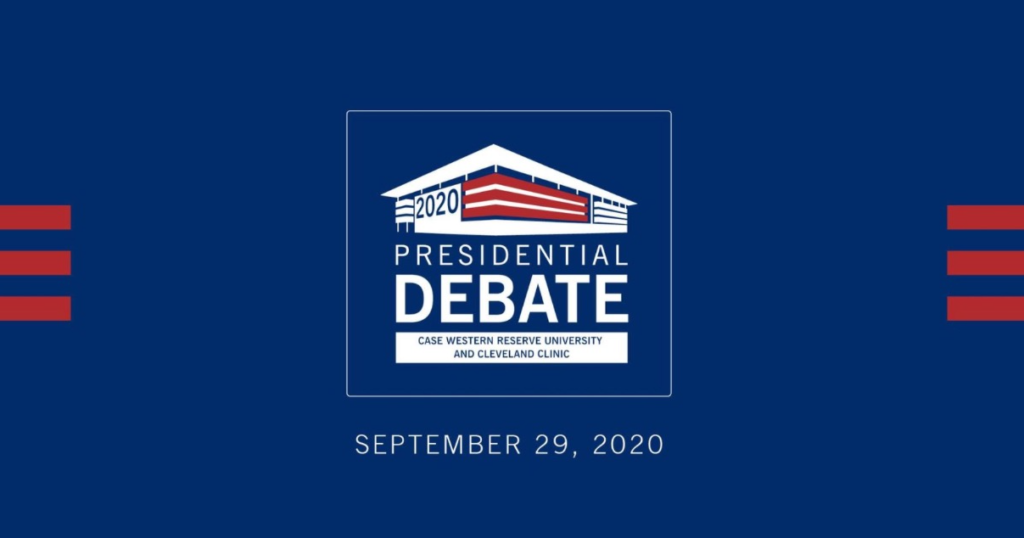Not Up for Debate: Why the Presidential Debates Matter

Image courtesy of Columbus Underground
By Gemma del Carmen
One of the most anticipated political debates in modern times will occur Tuesday September 29, 2020 when President Donald Trump faces former Vice President Joe Biden in the first faceoff between the two parties’ nominees. With a nation in crisis facing a global pandemic, mass racial outcries, and climate disasters, undecided voters across The United States will turn to the debates for answers to this question: “Can Biden or Trump prove to be the leader this country needs in its time of distress?”
While popular news sources such as NBC and The Washington Post have previously argued the irrelevance of debates on the electoral outcome, the unique circumstances of the 2020 Presidential election will add new significance to this cycle’s debates. Presidential Debates historically can cause polls to shift a few percentage points; while this may seem modest, those points can make a big difference in an election, especially in one with an incumbent candidate who has garnered unexpected support in years past. According to U.S. News, Trump won six states within margins of just 2 percent in the 2016 election, an alarmingly close number. If history repeats itself with the upcoming 2020 election, undecided voters will be essential in determining the winner of the Presidency.
With election day nearing, 11% of voters remain undecided according to an NBC News poll released September 20, 2020. This information begs the question “Can the presidential debates swing these voters to either candidate?” In short, yes. The performance of former Vice President Joe Biden and President Trump in the presidential debates could make an impact on where these swing voters fall.
The pressure lies heavily on former Vice President Joe Biden to avoid gaffes and appear headstrong and sagacious in the debates to potentially swing undecided voters. Trump faces much less pressure seeing as his supporters as well as the media expect his outlandish, off the cuff rhetoric. John Halpin, a Senior Fellow at the Center for American Progress went so far to say “Trump is a master of political discourse.” Knowing this, Halpin claims “anything Biden does wrong, the media is going to jump all over. They want this to be a competitive final month.” Simply, Biden faces criticism on a scale of the more traditional candidate; a scale such as this that considers decency, competency, and restraint does not leave any room for his Vice Presidential missteps. On the other hand, Trump has rewritten – rather, thrown out – the rulebook of presidential expectations. Consequently, the debates may prove to be more favorable to Trump in regards to swaying the 11% of uncertain voters, the one exception being a debate outcome in which responses from Biden are the most sharp, pointed, and well-reasoned they’ve ever been.
While Trump’s political gaffes tend to polarize the nation and strengthen the faith of his supporters, it’s time for Biden to avoid political blunders and unite the undecided voters in the middle if he wants to win the presidency. Additionally, Biden may garner undecided voter support by mirroring one of Trump’s particular demographic successes in 2016.
President Trump is said to have won the 2016 election due to non-college educated white male voters who were strongly influenced by his rhetoric leading them to vote for the very first time. It is quite possible a new group of voters, more impassioned to vote in a deeply polarized nation, will rise out of the sphere of political apathy and cast their vote for whichever candidate most impresses them in the debates. The voter-targeting firm Catalist estimated that it is possible that 156 million voters could hit the polls, an increase from the 139 million who voted in 2016; in the 2016 presidential election, only 58.1% of eligible Americans voted. This data validates the possibility for new diverse demographic voters to cast their ballots for the first time in the 2020 election, further demonstrating the importance of the presidential debates to help solidify the candidate choice of new and swing voters.
The Presidential Debates still matter, even with the majority of voters having decided on their preferred candidate for the Presidency. The debates are and always have been an avenue for voters to be further educated on each candidate’s contrasting plans for the nation; this year, the debates will also serve as a means to measure the competency, capability, and soundness of mind of President Trump and Mr. Biden which may very well sway undecided voters.
Biden must use these debates as an opportunity to continue to humanize himself to the American public, appeal to working class voters, and garner the support of families that have been gravely impacted by the United State’s response to the coronavirus. Trump, on the other hand, must utilize the debates as an opportunity to label Mr. Biden as ill-fit for the Presidency and demonstrate why he is the better choice if he wants any chance of remaining in office until 2024. With breathless anticipation, the campaigns, the voters, and the world will watch as the fate of a country swings in the balance.







